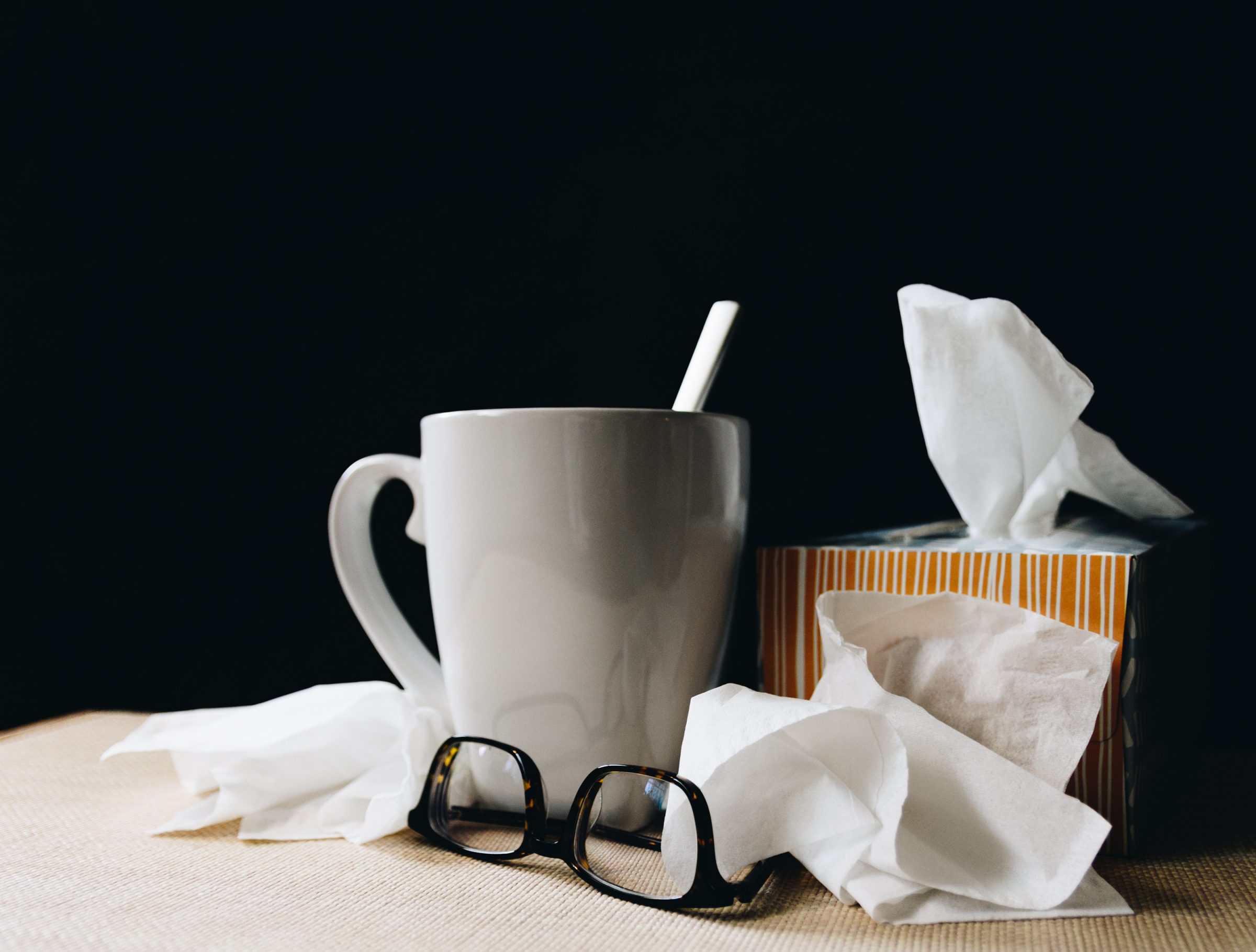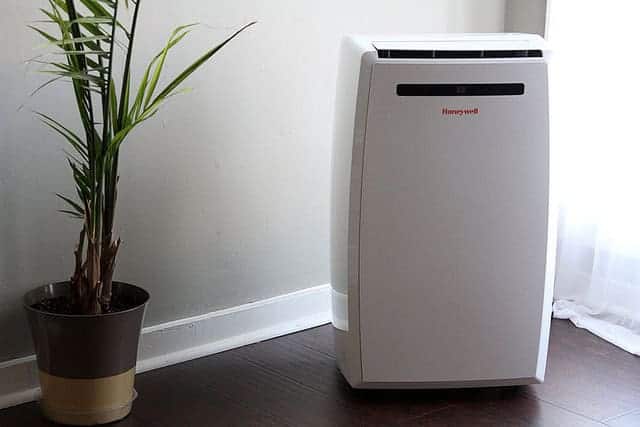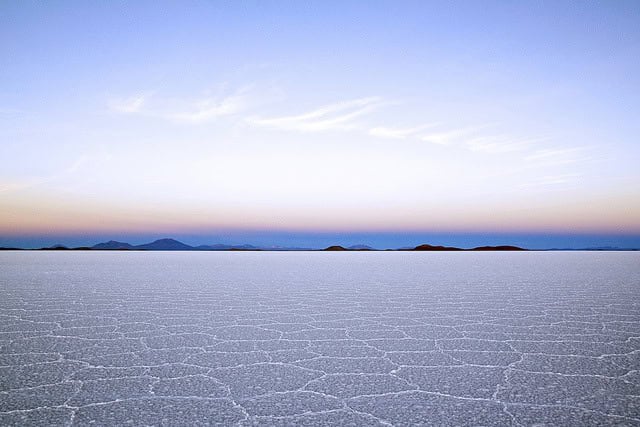Understanding how to manage dry air in winter ensures you, your guests, and tenants remain healthy and happy.
As beautiful as winter months are in the Midwest, there are a few seasonal pitfalls. Of course, we all think of frightful frigid weather outdoors, but the warm and cozy indoors offer drawbacks as well—primarily dry air.
The key to keeping a home warm but not dry is humidity. The amount of water content in the air around us is called relative humidity. High humidity means the air is saturated with water, while low humidity means the air is nearly devoid of water. Frigid air holds less water, so during the colder months in the Midwest, the result is often dry air both outside and inside your home. The less moisture in the air, the more problematic the dry air of winter becomes.
Lower Humidity Means Higher Levels of Illness

Low humidity causes our skin to dry out, itch, crack and break. In winter, this dry air chaps our lips, wreaks havoc on our hair and is even painful to breathe. Dry air is behind this discomfort, but even more concerning is our increased susceptibility to illness.
Skin is the body’s largest organ, and it serves a vital purpose. Healthy skin protects us from illness by providing a physical barrier that insulates our internal organs from all the nasty germs, bacteria, and allergens floating around.
The mucus membranes in our nasal cavities and throats are another primary defense against pathogens. Mucus contains an enzyme that breaks down the cell walls of bacteria, but the mucus membranes must remain moist to be effective. Dry air in winter means dry nasal passages, which in turn depletes protective mucus from our mouths and noses, leaving us more susceptible to illness.
Ever wonder why people seem to get sick more frequently during the colder months? A significant contributor to increased winter illness is lowered immunity due to cold, dry air. Dry air in winter mixed with a generally decreased exposure to vitamin D (sunlight), reduced activity levels, and spending a lot of time indoors is the perfect recipe for winter colds. While there is technically no such thing as “flu season,” it’s no surprise that, given all these different factors, our bodies and immune systems take a more significant beating in the cold winter months.
Along with dry air in winter outdoors, building owners everywhere are turning on their heating systems. Unfortunately, these systems have been sitting idle and gathering dust for several months while not in use. When heating systems are fired up in fall or winter, they tend to kick up dust, dirt, and other small particulates, which are then blown around our homes and businesses. Adding dust into an environment means more coughing, sneezing, allergy attacks, and general discomfort.
And don’t forget about the static electricity occurring in the winter months. Static electricity usually catches everyone by surprise and is never a pleasant experience. But, again, this is caused by dry air, which acts as an insulator. Static charges build upon us because electrons can’t move around as freely in low humidity. Adding moisture to the air will lower the incidence of static shocks and hair that stands on end.
The only answer to cold weather dry air problems is to rehydrate. Some suggestions for rehydrating include:
- Insulate your home. Seal cracks, gaps, and air leaks. Make sure inner and outer windows are closed. Keeping the heat in and the cold out helps dry air and keeps your pipes from freezing.
- Hydrate your body. Up your fluid intake by drinking plenty of water.
- Moisturize. Applying lotion to your skin relieves much of winter’s dry air effects on the skin by soothing itching and cracking.
- Keep showers brief. Long hot showers tend to dry out the skin, so try switching from hot showers to 15 minutes or less warm showers.
- Use a humidifier. Adding moisture to the air is the best way to combat dry air, keeping you and your skin healthier.
Understanding how to manage the effects of dry air ensures you, your guests, and tenants remain healthy, comfortable, and happy. Here are some keyways to handle winter’s dry air indoors, so you, your guests, or your tenants stay battle-ready against winter’s wrath.

Consider Using Hygrometers & Humidifiers
As a hotel, apartment, or senior center owner, you don’t want guests or tenants to associate your building with irritated skin, sore throats, and dry eyes. This problem is easily avoided by installing a commercial-grade humidifier to increase humidity levels and combat dry air.
But before installing a commercial humidifier, consider buying a hygrometer to measure the humidity levels in the building. Combination humidity and temperature meters can be found at many home improvement or electronics stores.
There is some debate about the ideal level of relative humidity for human comfort, but most people agree it should fall between 30% and 55%. Below 30%, you will start to run into the problems listed above, but a relative humidity above 55% means indoor spaces become a breeding ground for mold and bacteria. Keep in mind, in cold winter months, the indoor relative humidity can fall below 15%, which is considered very low.
If your hygrometer gives you a reading below 30%, look into installing several humidifiers or an industrial humidifier system for your hotel, apartment building, or senior center. Humidifiers add moisture to the air in your home or facility. Residential and commercial humidifiers come in many sizes. They are equipped with various options, including a built-in hygrometer, automatic shut-off, and UV germicidal lights to kill any waterborne bacteria or pathogens.
Who Should Consider Installing a Humidifier or Series of Humidifiers?
- Senior Facilities with older populations are at increased risk for illness and infection and respiratory issues.
- Hotels concerned with the comfort and overall health of their guests. Hotel owners could also consider keeping a supply of small room humidifiers on hand to offer guests on an as-needed basis.
- Apartment Buildings wishing to keep tenants comfortable and happy.
- Residential Homes can attach a humidifier to their heating and central air-conditioning unit, or homeowners can use small humidifiers that add moisture to a small area like a bedroom.
Proper air moisture levels also protect the wood furnishings in your building by reducing the risk of wood cracking and warping from low humidity exposure. Preserve the life of your wooden furniture, fixtures, and structural elements by ensuring proper levels of relative humidity.
Don’t Forget: Humidifiers Require Maintenance, Too!
Humidifiers, like all equipment, need a bit of tending. The two main elements to remember are changing the filter on your humidifier every 1-2 months and giving your humidifier a periodic cleaning. Add this to your regularly scheduled maintenance to ensure the long life of your humidifier.
Stay Up to Date on Your HVAC System Cleaning
Having your HVAC system cleaned provides two significant benefits:
- Savings in your energy bill because a system free of junk and debris works better and requires less energy.
- An improvement in indoor air quality from the removal of contaminants lurking in your ducts.
While energy savings are always crucial to a business’s bottom line, it’s the improvement to indoor air quality that will impact customers or tenants in the wintertime. Your ductwork could be full of pet dander, dust, chemicals, and many other air pollutants – especially if you haven’t had your HVAC system cleaned in a long time (or ever). Getting rid of contaminants that can cause illness is a benefit to everyone.
Skin Appreciates Soft Water
To further complicate the issue, naturally dry air in winter or fall also aggravates problems that arise with hard water. One of the biggest problems with hard water in the winter is it dries out and damages the skin, regardless of relative humidity levels in the air. Showering in hard water, then drying off in a low humidity environment, is harsh on already irritated and dry skin, accelerating existing conditions such as eczema, psoriasis, and rosacea.
So, while maintaining the correct humidity levels of your hotel, apartment building, or senior care facility is essential, don’t forget about your water softener. Keep your salt level at least half-full at all times, and don’t overfill, to maintain consistently soft water.

Don’t own a softener? Consider getting one – there are many benefits to softer water. If you’re unsure how hard your water is to start, or if you own a softener and want to ensure it functions correctly, pick up a water test from your local hardware store. To determine where your results fall, check with your local city resources for an average. Soft water has zero grains of hardness (measured in Grains per Gallon or GPG), which is only achieved by using a softening system. Any GPG number above zero is technically considered hard water, but 10 GPG and above is considered very hard and requires softening.
Hard water is rough on equipment, too, due to mineral particles left behind from the water, which leave a residue that will build up over time. Hard water build-up includes the humidifiers used to keep your relative humidity levels above 30%. Check to ensure you are using softened water in your humidifiers. Many manufacturers will recommend using distilled water to ensure they perform well for many years.
Hard water can also seriously damage your water heater and requires more energy to heat, so it’s essential to check the age and efficiency of your water heater, especially if you don’t have a softening system in place yet. It may be time for preventative maintenance if you’re using an older model or a standard model. Also, ask about the possibility of switching to a high-efficiency water heater, which will save you money in the long term.
Keep Winter’s Bite at Bay
The dry air in winter is tough on our bodies and our buildings, but there are plenty of steps to protect both against winter’s bite. It all starts with increasing the humidity and air quality while examining the HVAC and water systems in your building.
Since we can’t control the atmosphere outside, we must figure out how to manage the atmosphere inside. Staying on top of your water softener maintenance is the easy part. Finding an excellent central humidifier is a simple solution to guarantee improvements to the air quality in your hotel or apartment building. Increasing the comfort level of your guests and tenants is a good business practice and will likely gain positive business reviews and happy patrons.
Keep your building and tenants healthy this winter; contact Reliable Water Services at 1-800 356-1444 or [email protected].
All images in post used and licensed under CC Public Domain or CC by 2.0.